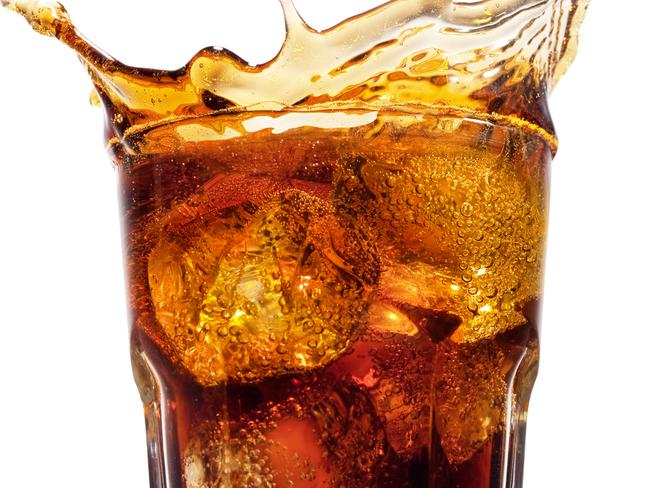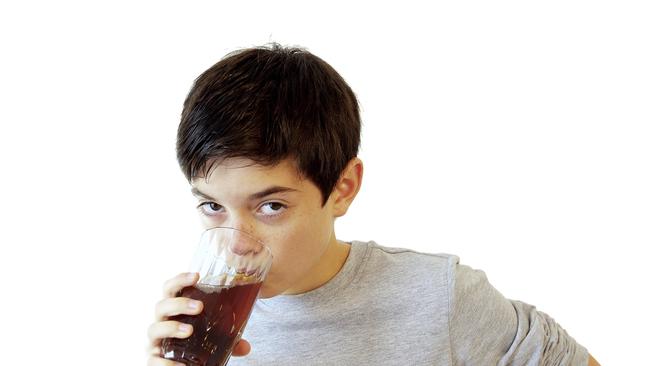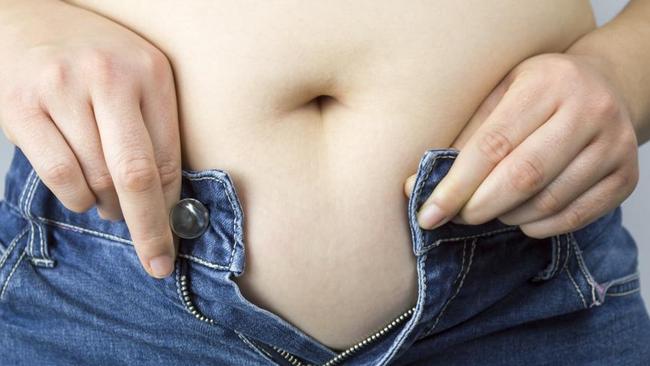Britain and the US have one, now the former Health Department chief says Australia needs a sugar tax
AUSTRALIA needs a sugar tax to recoup the drain obese people put on the budget says a former Health Department chief who has broken down the cost to Aussies.
Illness
Don't miss out on the headlines from Illness. Followed categories will be added to My News.
A SUGAR tax that would increase the price of a two litre bottle of coke by 80 cents has been proposed to recoup some of the billions taxpayers spend on treating obesity.
Former health department chief and Grattan Institute researcher Professor Stephen Duckett wants an excise tax imposed on non-alcoholic, water-based beverages to raise $500 million a year.
In a new report he says obese people are costing the health system $2.6 billion a year in health and hospital costs, they are more likely to be unemployed and on welfare and we need to recoup that cost.
A sugar tax would generate a drop in consumption of soft drinks by about 15 per cent and lead to an average annual 400 gram weight loss in men and 290 grams in women, his report finds.

Professor Duckett denies the tax would amount to a nanny state intervention in people’s dietary choices.
“A new tax is justified because the market has failed: the obesity epidemic is imposing a heavy cost burden on governments and non-obese Australians,” Professor Duckett says.
Two in three Australians are overweight or obese and consumption of sugar sweetened soft drinks is blamed for about 10 per cent of Australia’s obesity problem.
Consumption of sugar sweetened soft drinks has more than doubled in the last fifty years from 47 litres per person in the late 1960s to 113 litres per person.
Drinks like soft drinks, sports and energy drinks now account for a fifth of our sugar intake.

And teenage boys are the biggest consumers of these drinks, downing 38 teaspoons of sugar a day, well in excess of the 13 teaspoonfuls recommended by the World Health Organisation.
The UK government introduced a tax on sugary drinks in March and 17 other countries and five US states have introduced such taxes or are about to do so.
“Even if a Sugar Sweetened Beverage tax only has a limited impact on obesity, it should nevertheless be implemented because it partly offsets the third-party costs of obesity caused by consumption of unhealthy foods and beverages,” Professor Duckett says in his report.
Obesity is the second largest contributor to disease in Australia after tobacco and treating it is costing the health system $2.6 billion a year, the Grattan Institute says.
When the unemployment, welfare dependence and other social costs are taken into account obesity is costing the nation $8.3 billion a year, the report says.

The Grattan Institute says the sugar tax should be imposed as an excise charge of 40 cents per 100 grams of sugar in non-alcoholic, water-based beverages.
It would add 15 cents to the price of a 375ml can of soft drink, 14 cents to a 600ml bottle of sports drink, 48 cent to a six pack of fruit drink, and 35 cent to the price of a 1.25 litre bottle of flavoured mineral water.
Drinks affected by the tax would include soft drinks, flavoured mineral waters, fruit juices/drinks, energy drinks, flavoured waters and iced teas.
Flavoured milk would be exempt because the milk has some nutritional value, Professor Duckett says.
Artificially sweetened beverages will also be exempted even though recent studies have found they can be worse than sugary drinks because they make the body behave as if it has consumed sugar.
Research on mice has found sweeteners can raise blood glucose to significantly higher levels than sugar and alter the gut bacteria and metabolism of both humans and mice in a way that increases risk of obesity.
A sugar tax would have a tiny impact on Australia’s sugar industry, the report finds.
Australian sugar sweetened beverage manufacturers use approximately 320,000 tonnes of Australian-produced sugar in their products (about 6 per cent of Australia’s sugar production).
A reduction in consumption of sugary drinks will reduce demand for Australian produced sugar by 50,000 tonnes or 1 per cent all sugar production, the report says.
Costs of obesity according to the Grattan Institute
Total $8.3 billion
Third party costs $5.3 billion
Obesity accounts for
— $595 million extra GP services
— $628 million extra hospital care
— $1.38 billion pharmaceuticals
— $2.3 billion lost tax revenue
— $392 million welfare payments
— employment rates normal weight 5 per cent higher than for obese people
— obese workers take more sick leave and are, less productive



